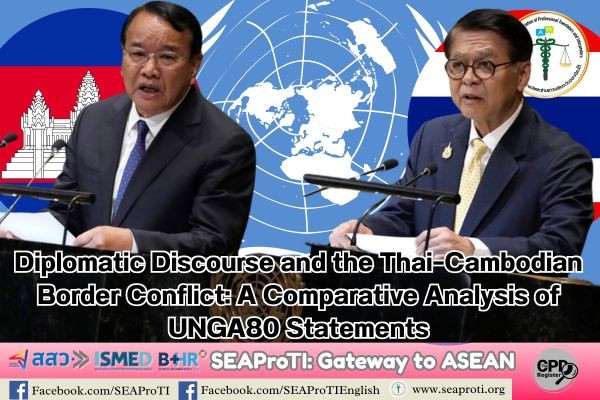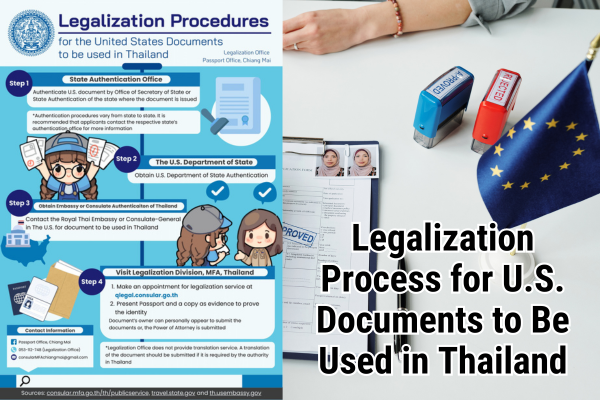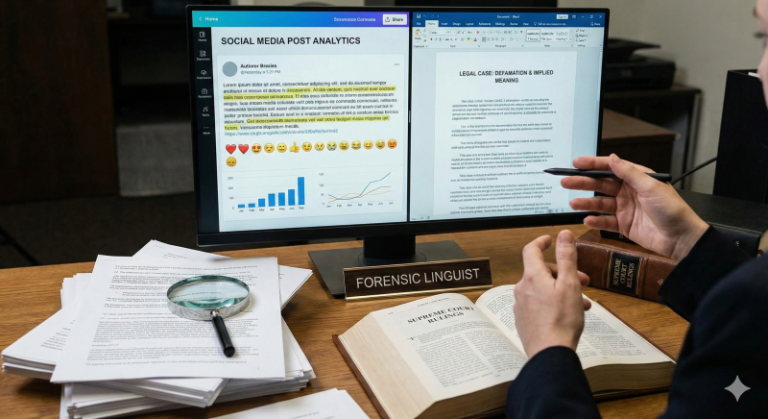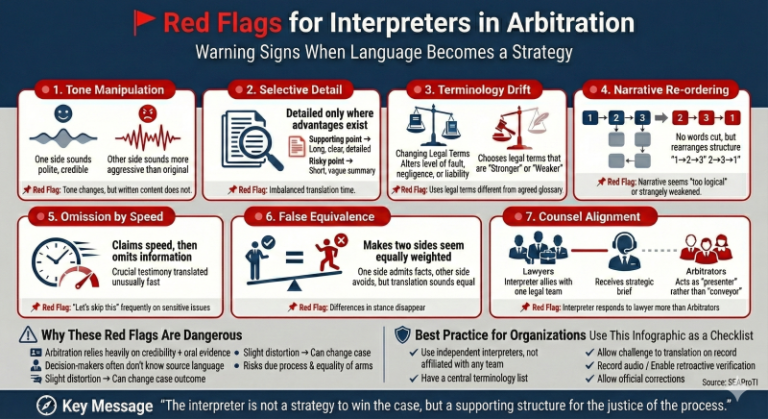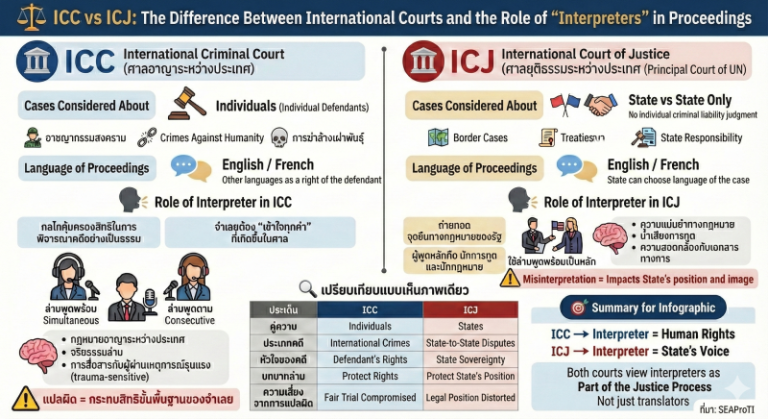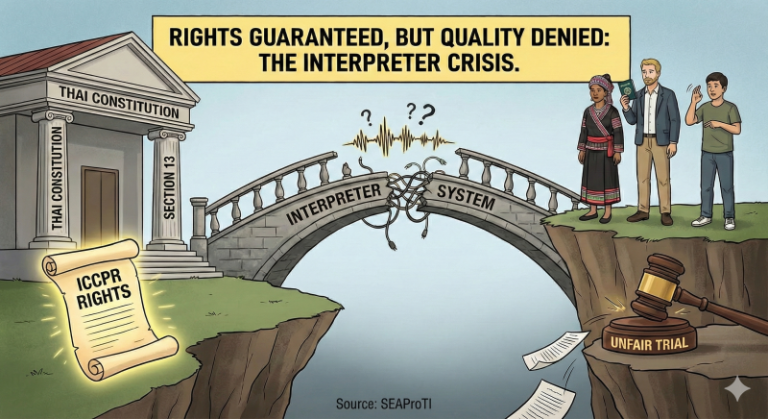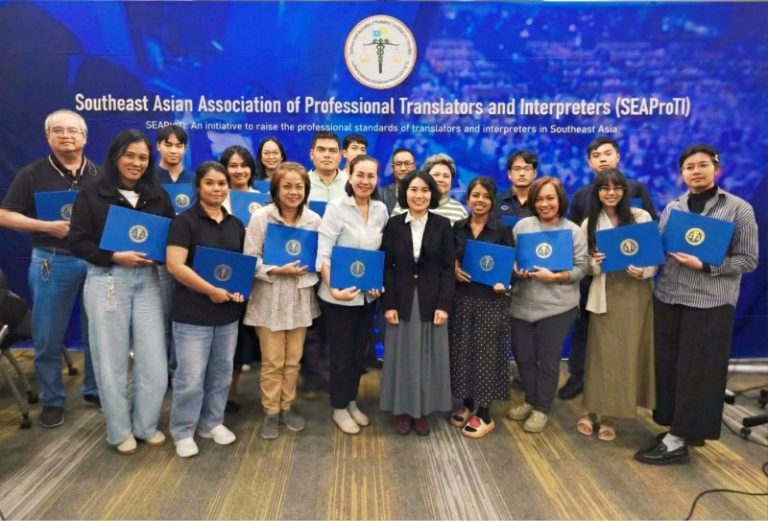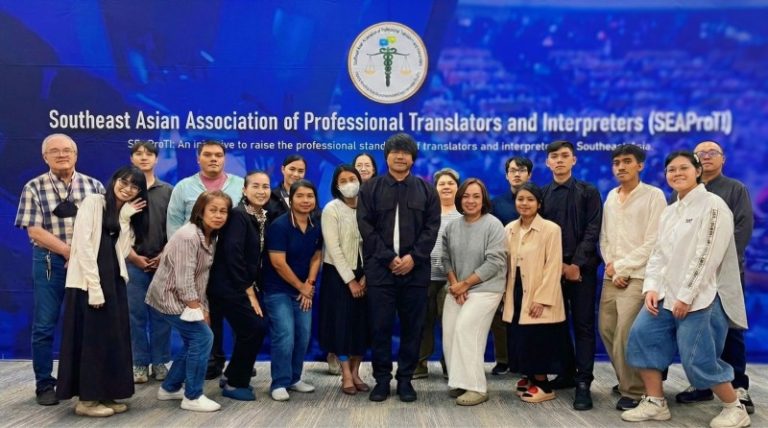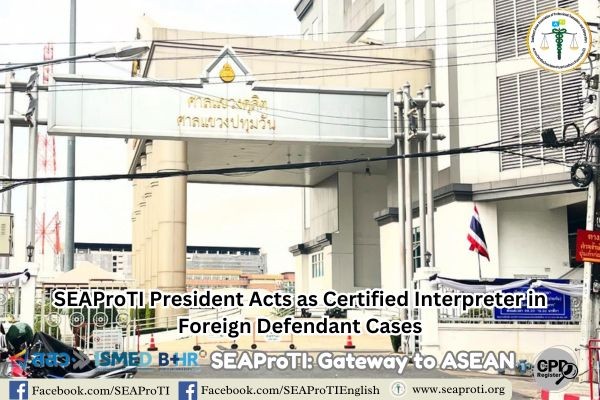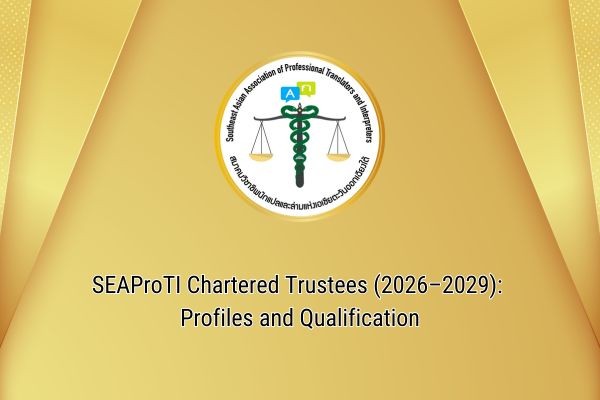Understanding Thailand’s Three Key Arbitration Laws That Make It Easier for Foreign Parties to Arbitrate in Thailand (and Use English in Proceedings)
8 May 2025, Bangkok – Thailand’s arbitration framework is governed by three key statutes that work together to enhance the country’s dispute resolution system in line with international standards. These laws enable cross-border dispute resolution, allow proceedings in foreign languages, and facilitate the participation of foreign arbitrators.
1. Arbitration Act B.E. 2545 (2002)
This is the primary legislation governing arbitration proceedings in Thailand. It replaces the 1987 Act to align with international principles, notably the UNCITRAL Model Law.
Key Highlights:
- Recognizes both domestic and international arbitration agreements.
- Grants parties the freedom to choose rules, institutions, and venues for arbitration.
- Defines the jurisdiction of Thai courts for recognizing and enforcing arbitral awards.
- Allows arbitration proceedings in foreign languages (Section 25).
- Arbitral awards can be enforced under Thai law and the New York Convention.
2. Thailand Arbitration Institute Establishment Act B.E. 2550 (2007)
This Act established the Thailand Arbitration Center (THAC), a public organization, to promote efficient and internationally trusted arbitration services.
Key Highlights:
- Officially establishes THAC as a state entity.
- THAC provides arbitration and mediation services for domestic and international disputes.
- Supports the use of foreign languages in proceedings to accommodate cross-border disputes.
3. Arbitration Act (No. 2) B.E. 2562 (2019 Amendment)
This amendment enhances the 2002 Act to attract foreign investors and position Thailand as a regional arbitration hub.
Key Highlights:
- Adds Section 23/1: Allows foreign nationals and foreign entities to act as arbitrators in Thailand without requiring a work permit under the Foreign Employment Law.
- Expands the role of foreign professionals in international disputes held in Thailand.
- Increases flexibility regarding venue and language of proceedings, without mandating the use of Thai.
- Use of Foreign Languages in Arbitration
- Both the 2002 and 2019 Acts explicitly allow the use of foreign languages in arbitration:
Section 25:
“Proceedings shall be conducted in Thai, unless the parties agree otherwise.”
Implications:
- Parties may agree to conduct proceedings entirely in a foreign language, such as English, Chinese, or Japanese.
- There is no legal requirement to use the Thai language if the parties consent otherwise.
- This provision accommodates foreign parties, investors, and multinational corporations.
Comparative Summary
| Act | Key Feature | Language in Proceedings |
|---|---|---|
| B.E. 2545 (2002) | Establishes the legal foundation and aligns with UNCITRAL standards | Thai, unless otherwise agreed by the parties |
| B.E. 2550 (2007) | Establishes THAC and promotes arbitration services | Supports the use of foreign languages |
| B.E. 2562 (2019) | Amends the 2002 Act to ease foreign arbitrator participation | Encourages foreign-language use in international cases |
Final Summary
Thailand’s Arbitration Act B.E. 2545 sets the legal foundation for arbitration and allows proceedings in foreign languages if agreed upon. The Thailand Arbitration Institute Act B.E. 2550 established THAC to provide arbitration services and support international dispute resolution. The 2019 Amendment (B.E. 2562) further enables foreign professionals to act as arbitrators without requiring work permits and promotes the use of foreign languages. Together, these laws support Thailand’s goal of becoming a regional arbitration hub and make it easier for foreign parties to access justice in international disputes.
SEAProTI’s certified translators, translation certification providers, and certified interpreters:
The Southeast Asian Association of Professional Translators and Interpreters (SEAProTI) has officially announced the criteria and qualifications for individuals to register as “Certified Translators,” “Translation Certification Providers,” and “Certified Interpreters” under the association’s regulations. These guidelines are detailed in Sections 9 and 10 of the Royal Thai Government Gazette, issued by the Secretariat of the Cabinet under the Office of the Prime Minister of the Kingdom of Thailand, dated July 25, 2024, Volume 141, Part 66 Ng, Page 100.
To read the full publication, visit: the Royal Thai Government Gazette
รู้จักกฎหมายอนุญาโตตุลาการไทย 3 ฉบับสำคัญ ที่ช่วยให้ต่างชาติสู้คดีในไทยได้ง่ายขึ้น (และเป็นภาษาอังกฤษได้)
8 พฤษภาคม 2568, กรุงเทพมหานคร – สาระสำคัญของ พระราชบัญญัติอนุญาโตตุลาการ ทั้ง 3 ฉบับ (พ.ศ. 2545, พ.ศ. 2550 และ พ.ศ. 2562) มีความเกี่ยวข้องกันโดยตรง และจัดเป็นกฎหมายหลักที่ใช้ควบคุม กระบวนการระงับข้อพิพาทโดยวิธีอนุญาโตตุลาการในประเทศไทย โดยมีพัฒนาการต่อเนื่องเพื่อรองรับมาตรฐานสากลและการลงทุนข้ามชาติ
1. พระราชบัญญัติอนุญาโตตุลาการ พ.ศ. 2545 (Arbitration Act B.E. 2545)
เป็นกฎหมายแม่บทหลักที่กำหนดกระบวนการพิจารณาคดีโดยอนุญาโตตุลาการในประเทศไทย แทนที่พระราชบัญญัติปี 2530 เพื่อให้สอดคล้องกับหลักสากล เช่น UNCITRAL Model Law
สาระสำคัญ:
- รับรองข้อตกลงอนุญาโตตุลาการ ทั้งในประเทศและระหว่างประเทศ
- ให้อำนาจคู่สัญญาเลือกกฎเกณฑ์ องค์กร และสถานที่อนุญาโตตุลาการ
- กำหนดเขตอำนาจศาลไทยในการพิจารณารับรองและบังคับคำชี้ขาดอนุญาโตตุลาการ
- รองรับกระบวนพิจารณาภาษาต่างประเทศได้ (มาตรา 25)
- คำชี้ขาดของอนุญาโตตุลาการสามารถนำไปบังคับได้ตามกฎหมายไทยและสนธิสัญญานิวยอร์ก (New York Convention)
2. พระราชบัญญัติ – สถาบันอนุญาโตตุลาการ พ.ศ. 2550 (Thailand Arbitration Institute Establishment Act B.E. 2550)
เป็นกฎหมายเฉพาะที่จัดตั้ง สถาบันอนุญาโตตุลาการ (Thailand Arbitration Center – THAC) เพื่อส่งเสริมระบบอนุญาโตตุลาการให้มีประสิทธิภาพและได้รับความเชื่อถือในระดับนานาชาติ
สาระสำคัญ:
- จัดตั้งสถาบันอนุญาโตตุลาการอย่างเป็นทางการในฐานะหน่วยงานของรัฐ
- มีหน้าที่ส่งเสริม สนับสนุน และให้บริการด้านอนุญาโตตุลาการ
- ให้บริการรับดำเนินคดีระงับข้อพิพาททั้งในประเทศและระหว่างประเทศ รวมถึงสามารถใช้ภาษาต่างประเทศ
3. พระราชบัญญัติอนุญาโตตุลาการ (ฉบับที่ ๒) พ.ศ. 2562 (Amendment Act (No.2) B.E. 2562)
เป็นการแก้ไขเพิ่มเติม พ.ร.บ. 2545 เพื่อ ดึงดูดนักลงทุนต่างชาติ และทำให้ไทยเป็นศูนย์กลางด้านอนุญาโตตุลาการ
สาระสำคัญ:
- เพิ่มมาตรา 23/1: ให้นิติบุคคลต่างชาติหรือผู้ไม่มีสัญชาติไทยสามารถเป็นอนุญาโตตุลาการได้ โดยไม่ต้องมีใบอนุญาตทำงาน (work permit) ตามกฎหมายคนต่างด้าว
- ส่งเสริมให้ต่างชาติสามารถมีบทบาทในคดีระหว่างประเทศที่พิจารณาในไทยได้มากขึ้น
- เพิ่มความยืดหยุ่นในการกำหนดสถานที่และภาษาพิจารณา โดยไม่จำเป็นต้องใช้ภาษาไทยเสมอไป
การพูดถึง “กระบวนพิจารณาคดีเป็นภาษาต่างประเทศ”
ทั้ง พ.ร.บ. ปี 2545 และฉบับแก้ไขปี 2562 ได้กล่าวไว้อย่างชัดเจนใน มาตรา 25 ว่า
“ในการพิจารณาอนุญาโตตุลาการให้ใช้ภาษาไทย เว้นแต่คู่กรณีจะตกลงกันให้ใช้ภาษาอื่น”
สรุปได้ว่า:
- คู่กรณีสามารถตกลงให้ใช้ ภาษาต่างประเทศ ในการพิจารณาได้ทั้งหมด เช่น ภาษาอังกฤษ จีน ญี่ปุ่น ฯลฯ
- ไม่มีข้อจำกัดว่าต้องใช้ภาษาไทยเสมอ
- รองรับการพิจารณาคดีที่มีคู่กรณีเป็นชาวต่างชาติ นักลงทุน หรือบริษัทข้ามชาติ
เปรียบเทียบสาระสำคัญโดยสรุป
| ฉบับ | จุดเด่น | ภาษาในการพิจารณา |
|---|---|---|
| พ.ศ. 2545 | วางรากฐานกระบวนการอนุญาโตตุลาการไทย รองรับกฎหมายต้นแบบสากล | ใช้ภาษาไทย เว้นแต่จะตกลงเป็นภาษาอื่น |
| พ.ศ. 2550 | จัดตั้งสถาบัน THAC เป็นศูนย์กลางให้บริการอนุญาโตตุลาการ | สนับสนุนการใช้ภาษาต่างประเทศ |
| พ.ศ. 2562 | แก้ไขเพื่ออำนวยความสะดวกให้ชาวต่างชาติเป็นอนุญาโตฯ ได้ | ส่งเสริมการใช้ภาษาต่างประเทศในคดีระหว่างประเทศ |
สรุปส่งท้าย
พระราชบัญญัติอนุญาโตตุลาการ พ.ศ. 2545 วางหลักการพิจารณาคดีโดยอนุญาโตตุลาการและเปิดให้ใช้ภาษาต่างประเทศได้หากคู่กรณีตกลงกัน พ.ร.บ. สถาบันอนุญาโตตุลาการ พ.ศ. 2550 จัดตั้ง THAC เพื่อให้บริการระงับข้อพิพาทและสนับสนุนคดีระหว่างประเทศ พ.ร.บ. อนุญาโตตุลาการ (ฉบับที่ 2) พ.ศ. 2562 แก้ไขเพื่ออำนวยความสะดวกแก่ผู้เชี่ยวชาญต่างชาติ โดยไม่ต้องมีใบอนุญาตทำงาน ทั้งสามฉบับร่วมกันพัฒนาไทยให้เป็นศูนย์กลางอนุญาโตตุลาการในระดับภูมิภาค กฎหมายไทยอนุญาตให้ใช้ภาษาต่างประเทศในการพิจารณาคดีได้ตามความตกลงของคู่กรณี
เกี่ยวกับนักแปลรับรอง ผู้รับรองการแปล และล่ามรับรองของสมาคมวิชาชีพนักแปลและล่ามแห่งเอเชียตะวันออกเฉียงใต้
สมาคมวิชาชีพนักแปลและล่ามแห่งเอเชียตะวันออกเฉียงใต้ (SEAProTI) ได้ประกาศหลักเกณฑ์และคุณสมบัติผู้ที่ขึ้นทะเบียนเป็น “นักแปลรับรอง (Certified Translators) และผู้รับรองการแปล (Translation Certification Providers) และล่ามรับรอง (Certified Interpreters)” ของสมาคม หมวดที่ 9 และหมวดที่ 10 ในราชกิจจานุเบกษา ของสำนักเลขาธิการคณะรัฐมนตรี ในสำนักนายกรัฐมนตรี แห่งราชอาณาจักรไทย ลงวันที่ 25 ก.ค. 2567 เล่มที่ 141 ตอนที่ 66 ง หน้า 100 อ่านฉบับเต็มได้ที่: นักแปลรับรอง ผู้รับรองการแปล และล่ามรับรอง



